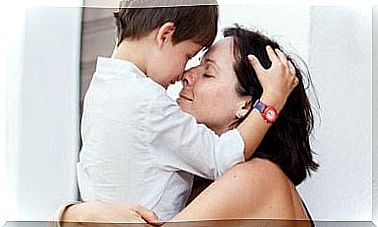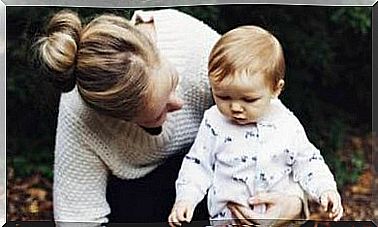5 Ways To Avoid Passing On Your Fears To Your Children

Fear is normal in humans: it is a feeling that warns of some threat. This is natural, even in young children because they do not yet know many things about the world they live in, but slowly these childhood fears are overcome. The problem comes when parents transmit their fears to their children and these, if they last over time, hardly vanish.
Even if it is difficult to notice, it is often the parents who pass on to their children an inherited belief system, made up of a thousand insecurities. If these fears are not addressed intelligently, the risk is that they will accompany children throughout their lives.
To avoid passing on your fears to your children, you must first acknowledge them.
Children are like sponges and absorb all kinds of information, but without the ability to distinguish the good ones from the ones that are not. For this reason, the adults they are surrounded by are the main source from which they learn how to behave in life.
Surely you have heard children say that they want to be like their mother or father when they grow up…. This sentence reveals the purest truth of childhood: mom and dad are examples to follow. This is why it is very important that parents know their inner world and find out what fears they would not like to transmit to their children.
Don’t be embittered if you don’t know how to put a stop to this reality. This is a process that must be understood and you can also follow the advice we will give you in this article to be able to be objective with yourself.
Don’t pass on your fears to your child

Each person is defined on the basis of how they grew up, the education they had, the circumstances they encountered over the years. However, once these wonderful little creatures come into your life and you hold them in your arms for the first time, you need to be very careful not to influence them with your negative experiences.
Everyone will write their own story, with ups and downs. However, if as parents you pass on anxieties to your children that they have not yet been able to experience, you risk raising children that are submissive, isolated, vulnerable and unmotivated in the face of their surroundings.
The education we receive from our parents influences the way we educate children.
Probably, in your childhood you fell from a tree and no longer had the courage to climb it, or your parents prevented you from going out and playing on the street with other children because they didn’t want anything bad to happen to you. .. You want yours son do you live with these fears, only because you have lived them? Obviously not.
5 ways to not pass on your fears to your children

Now we will give you the list of the 5 fundamental ways to prevent the frustrations you carry in your heart from being transmitted to the little ones of the house:
- Be courageous and evaluate the fears you feel in your heart: with this information try to recognize how you are transmitting them to your child.
- Try to talk about those things that frighten you and face them: it is not just about talking about them but about teaching the little one a clear and direct way to deal with them.
- Don’t exaggerate fears: be careful when you talk about fears with your child, it could give him the feeling that it is something more serious than it really is.
- If you see that he is afraid, listen to him and work out solutions.
- Don’t laugh at his worries, and don’t make him feel bad about what scares him.
Overprotection: the best friend of fears
Nobody wants these little ones who bring so much joy into existence to go through difficult or dangerous situations. As those responsible for their integrity, you must orient them so that they know how to take care of themselves always and that they are able to recognize the true danger.
Sometimes you go overboard to try to protect them in this complex age and don’t realize you are overprotective.
Taking care of children does not mean limiting them in every way and keeping them inside a glass dome; on the contrary, it means encouraging them to leave their world to learn to recognize what should not be done. It is not a simple task, but with love you will get them to be free and happy.









